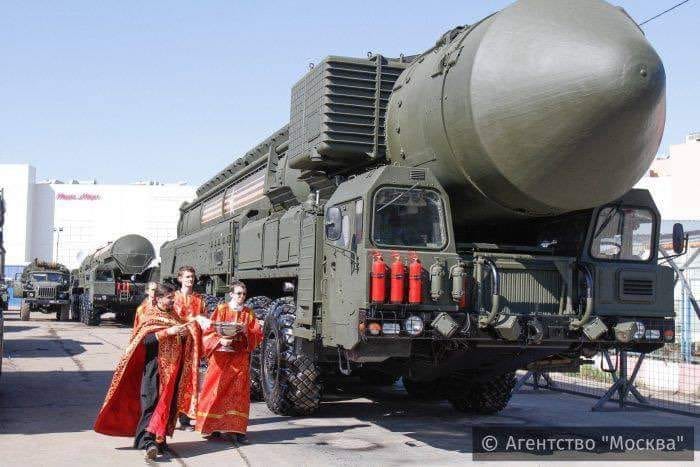Russia’s military does have missiles nicknamed “Satan.” The RS-28 Sarmat is Russia’s latest and most powerful ICBM, and it has been nicknamed “Satan 2” by the North Atlantic Treaty Organization. The missile was introduced in 2016, and Vladimir Putin announced that Russia had tested one last month. The Satan 2 was preceded by the R-36M, nicknamed SS-18 “Satan” by NATO, an ICBM developed by the Soviet Union.
It is also true that Russian Orthodox priests have long had a tradition of blessing weapons of mass destruction and other artifacts of war, though in the past few years officials in the church have considered issuing guidance to cease the blessing of weapons of mass destruction.
But the viral picture does not depict the Satan missile. Nor is it from the current Russian invasion of Ukraine. The picture is at least five years old, and in 2019, the Jamestown Foundation, a conservative defense think tank, shared the picture on its website, identifying the missile as a “Topol-M,” a Russian intercontinental ballistic missile.
While this picture does show Russian Orthodox priests blessing a missile, it is not either model of Satan missile, nor is it from the current Russian invasion of Ukraine.
If you have a claim you would like to see us fact check, please send us an email at factcheck@thedispatch.com. If you would like to suggest a correction to this piece or any other Dispatch article, please email corrections@thedispatch.com.







Please note that we at The Dispatch hold ourselves, our work, and our commenters to a higher standard than other places on the internet. We welcome comments that foster genuine debate or discussion—including comments critical of us or our work—but responses that include ad hominem attacks on fellow Dispatch members or are intended to stoke fear and anger may be moderated.
With your membership, you only have the ability to comment on The Morning Dispatch articles. Consider upgrading to join the conversation everywhere.